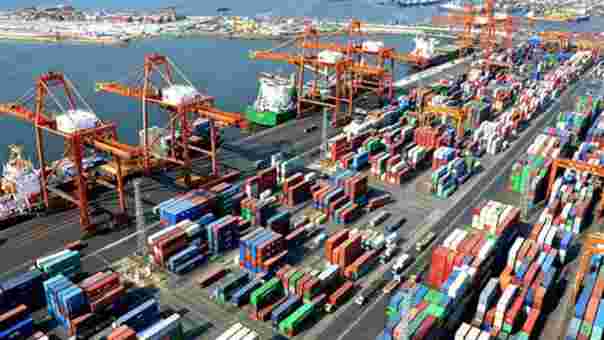Karachi, August 24, 2025 – A large-scale post-rain cleanup operation has been launched at major ports in Karachi to remove accumulated waste from berths, jetties, and navigational channels.
The initiative, led by the Federal Ministry for Maritime Affairs, aims to address the severe pollution that follows heavy rainfall in the city.
Federal Minister for Maritime Affairs Junaid Anwar Chaudhry announced that the government is determined to move beyond repetitive post-rain cleanup drives and adopt preventive measures to protect marine ecosystems, fisheries, and coastal communities. “Each time heavy rains hit Karachi, runoff from drains carries untreated sewage, industrial effluents, and solid waste directly into the sea, threatening both the environment and public health,” the minister stated.
He explained that Karachi’s drainage and sewerage systems discharge nearly 450 million gallons of sewage and 600 million gallons of industrial waste into the Arabian Sea daily. During intense monsoon spells, this volume surges dramatically, worsening contamination around the ports and nearby coastal areas.
The minister cited rising levels of nitrogen dioxide, ground-level ozone, plastics, and chemical residues as key threats to marine biodiversity and human health. These pollutants not only contaminate seafood but also release toxins that can disrupt hormones, damage organs, and increase neurological risks due to heavy metal accumulation in fish species consumed locally.
Recalling a major environmental incident, Chaudhry pointed to the mass die-off of around 100 tonnes of mullet fish in Karachi Harbour, Manora Channel, and Chinna Creek in 2013, which was traced back to toxic industrial and sewage discharges. The estimated market value of the loss was nearly PKR 25 million, highlighting the economic as well as ecological impact of unchecked pollution.
The ongoing cleanup drive at Karachi ports currently involves barges, skimmer boats, and marine crafts to collect plastics, oil residues, and floating debris from navigational channels. However, the minister emphasized that long-term resilience lies in preventing pollutants from entering waterways in the first place. Plans include installing litter booms at major drain outfalls, introducing oil-water separators, and setting up stormwater treatment plants to intercept contaminated flows before they reach the sea.
Chaudhry stressed the need for collaboration with agencies like the Sindh Environmental Protection Agency and the Karachi Metropolitan Corporation to ensure systematic water quality monitoring and proper waste management. He added that lessons from international ports show that even low-cost preventive interventions can drastically cut pollution levels.
“Protecting Karachi’s marine environment is vital for sustaining fisheries, safeguarding coastal livelihoods, and securing the city’s long-term economic potential,” the minister concluded.
